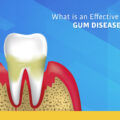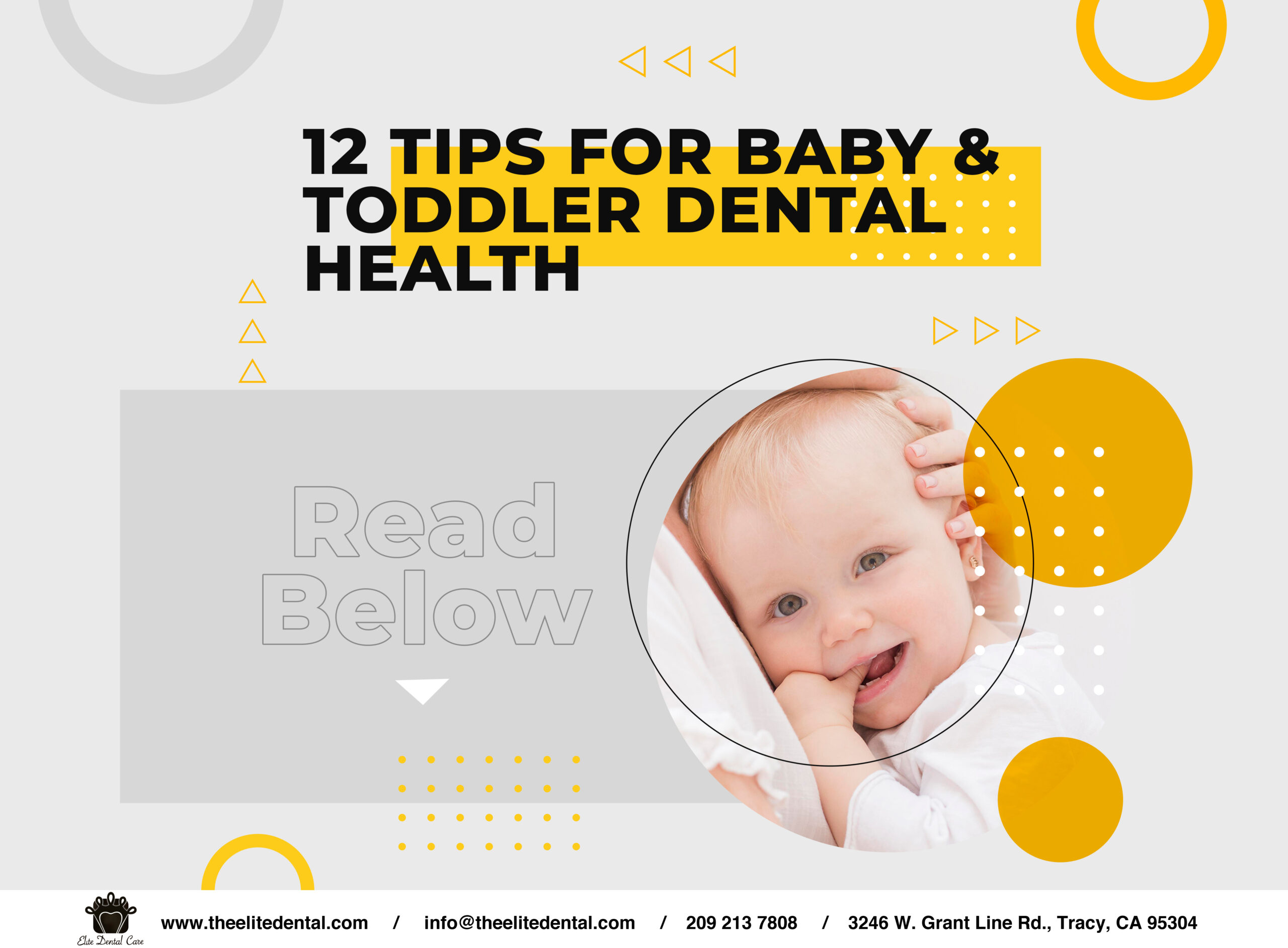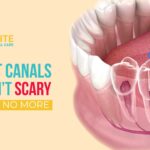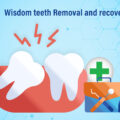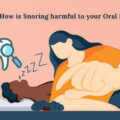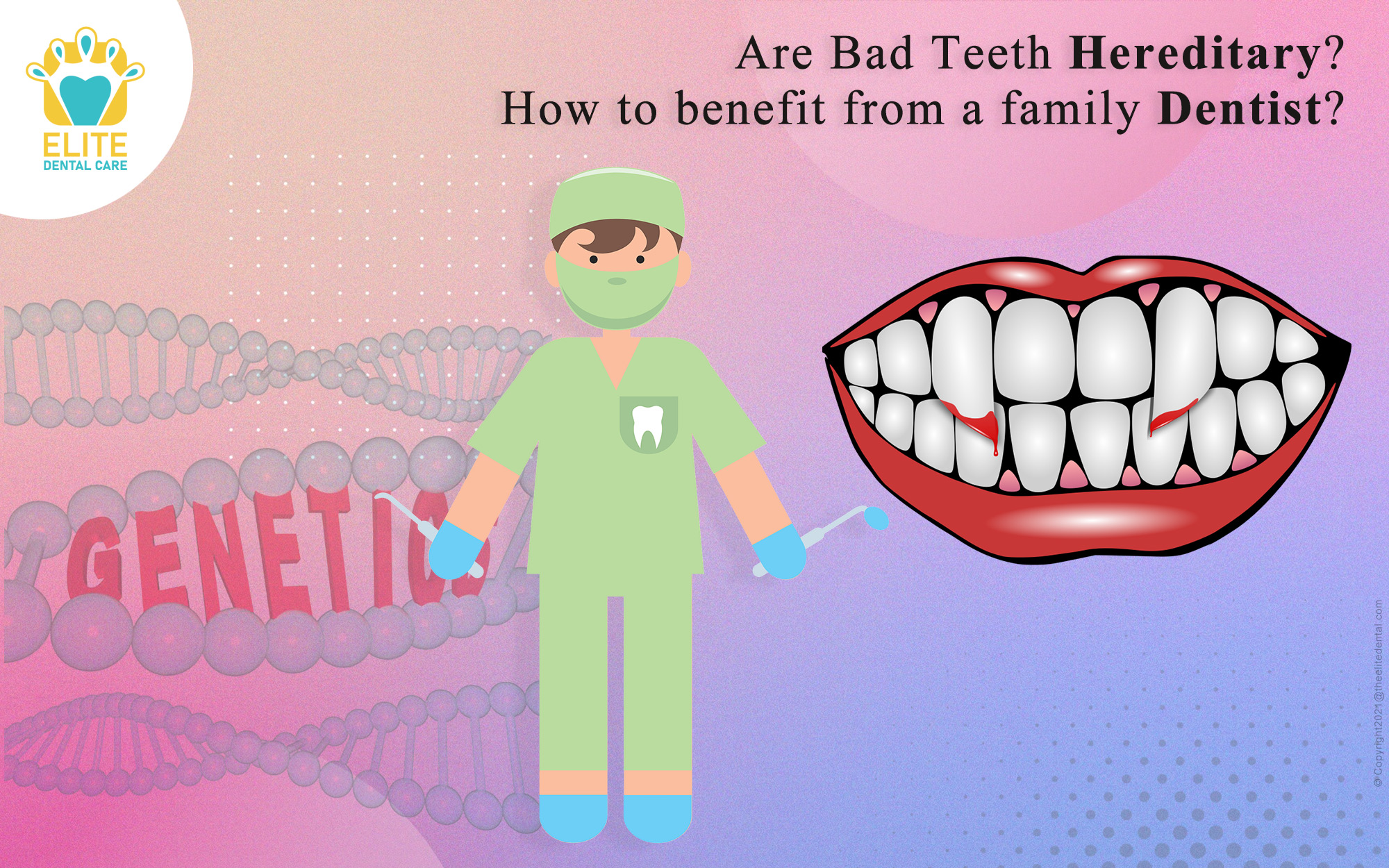
hygiene tipsoral healthTeeth Whitening
edental
17 January 2022
Are Bad Teeth Hereditary? How to benefit from a family Dentist?
Many things may be related to heredity, according to your family dentist, but when it comes to oral health, genes fall short of taking complete blame. While a person’s genetic composition might influence some traits, oral health is ultimately determined by a person’s determination to maintain it.
Personal Care or Genetic traits?
Genetically inherited Dental Health Problems
The dental disorders that may arise as a result of parental influence will mostly concern the interior and exterior aspects of the mouth. When it comes to dental disorders, traits which including tooth size, mouth shape, and overcrowding are just a few of the traits that can be passed on genetically. Overcrowding, for example, might result in tartar and plaque development if there isn’t enough room in the mouth for all those teeth. Fortunately, these concerns can be resolved by seeing a family dentist concerning probable tooth extraction and/or dental realignment.
Some tooth problems, on the other hand, may be inherited. Differences in the gene beta-defensin 1 (DEFB1) have been related to an increased incidence of persistent tooth cavities. Those with a history of gum disease or oral cancer may be prone to the illnesses as well. Although genes have a role in your dental health, basic oral care can help avoid certain concerns from happening.
Personal Care is Involved in Dental Health
While heredity can impact in various dental traits and propensity to specific dental diseases, it is up to the individual to maintain and sustain excellent tooth hygiene. Yellowing, discolored teeth, and cavities caused by poor oral hygiene are not caused by heredity. Avoid drinking fizzy or sugary beverages, eating junk food, and using tobacco products.
A family dentist can also advise on dental hygiene practices such as brushing, flossing, and yearly cleanings. Brushing twice a day, flossing, eating a well-balanced diet, and general wellness may all play a role in oral health. Recognizing this and leading a healthy lifestyle helps teeth as well as the body and mind.
Correct Bad Habits Right Away
Even if dental hygiene was not a frequent topic of discourse when you were growing up, you may begin a new regimen at any moment. Small tweaks and reminders are an excellent place to begin on the path to a healthy mouth. Brush once in the morning and set an alarm to brush again before going to night. Additionally, if flossing is not a daily ritual, try including it into a nighttime dental hygiene routine.
Set a regimen for everyone in the family and stress the value of excellent dental hygiene. Remember to schedule frequent cleaning visits with your family dentist as part of your normal dental care program.
A person’s genes do not always lead them to have a bad grin. Keep a close eye out for the following if your parents had “poor teeth”:
Some characteristics of our oral health might be inherited from our parents and passed on to our children. Not all of the time. However, there are certain elements of oral health that are solely the result of environmental circumstances. There is a third facet of oral health that is a hybrid of the two.
Let’s take a glance at each of the 4 categories:
1.Teeth Misalignment
You may undoubtedly blame your parents for your crooked or overcrowded teeth. Orthodontic problems are mostly caused by hereditary differences in jaw size. You may also suffer bite difficulties that result in persistent jaw discomfort based on the exact location of your teeth.
The best part is that you will not have to put up with crooked teeth forever. It’s possible that you won’t even need braces! Clear aligners, which almost vanish when worn over your teeth, can be used by your dentist to improve your smile and enhance your dental health.
2.Disease of the Gums
Gum disease, while being avoidable, is the main cause of adult tooth loss. 50 percent of individuals now have this illness, and 30 percent are at a greater risk owing to genes.
If you or a member of your family has gum disease, floss every night and brush your teeth at least twice a day. If you detect any signs, such as swelling, red, or bleeding gums, notify your dentist right once.
3.Cavities
Some genetic variations have been discovered to enhance the incidence of decay in adult teeth. While this concern is greatest in teens and pre-teens, adults with persistent tooth decay may be benefited from more regular cleanings and medicated toothpaste or mouthwash.
4.A Bad Bite Caused by a Congenital Issue in the Jaw
Now this is a little more difficult to avoid. The jaw will develop according to the pattern supplied in our genetic structure. A person who is born with jaws which are too narrow for all of their teeth would most likely have crowded teeth. A person with jaws that are considerably different in size would have a strong overbite or underbite.
The good thing is that a family dentist will treat their patients based on their parents’ and siblings’ dental histories. A family dentist will use details from other family members to foresee issues and begin treatment as soon as feasible.
Continue to Take One Step Forward
Every parent wants the best for his or her child, along with a healthy smile. With so many possible disorders that may be handed down, maintaining your child’s dental health is difficult, but you don’t have to do it all alone. Seek the assistance of your family dentist in your area for the best professional and at-home dental treatment. Correcting existing problems early on and training your child to make dental-friendly choices can bring long-term advantages to his or her health.
If you are facing dental issues, please book an appointment with us by visiting our official website.
